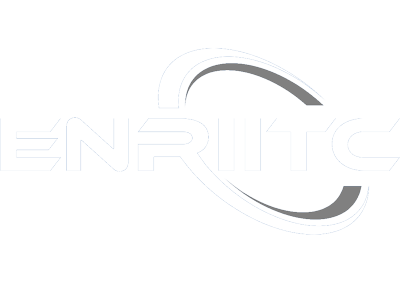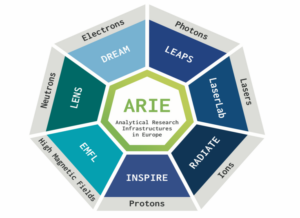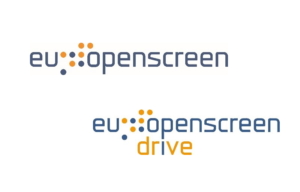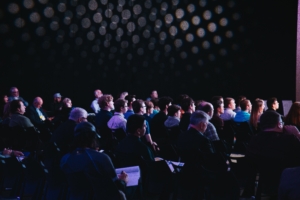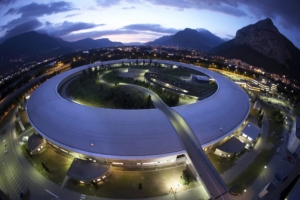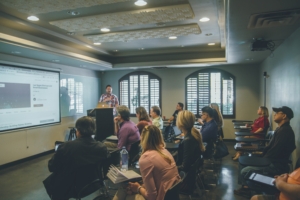User-related past news and events
In this section you can find information about past news or events organised by ENRIITC members which focus on developing efficient relations between users and research facilities.
The EMSO Generic Instrument Module (EGIM): Standardized and interoperable instrumentation for ocean observation
8 June 2022
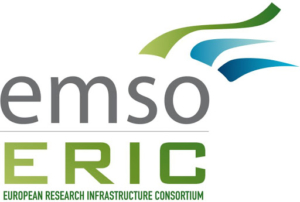
The team involved in the EMSO-DEV H2020 project coordinated by Nadine Lantéri (Institut Français de Recherche pour l’Exploitation de la Mer) published a paper on Frontiers in Marine Science, in the section “Ocean Observation”, about the EMSO Generic Instrument Module (EGIM), designed to measure variables of broad scientific interest consistently over long periods of time.
The paper describes the system, features, set-up, operation and data management. A series of coastal and oceanic deployments with various site configurations and deployment scenarios demonstrates that the EGIM is a valuable ocean observation module, which can significantly enhance the capability of the observatories and contribute to addressing questions that link physical, biogeochemical, biological and ecosystem variables. The diverse use cases presented in the paper relate to drivers of fish activity, hydrothermal vent fluids and particles dispersion, passive acoustic monitoring of marine mammals and to long-term time series of ocean environmental variation in the water column.
Learn more here!
Overview on the ERIC Forum Meeting 2022
15 February 2022
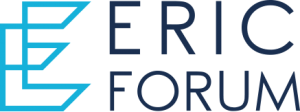
The first ERIC Forum Meeting 2022 took place virtually on 26-27 January. It brought together more than 145 participants from the Forum’s key stakeholders, including the European Commission, ministries of research, ESFRI, Research Infrastructures (RIs) and ERIC communities, and more.
The two-days event was divided into open and closed sessions:
- Open sessions: Enriched by the participation of policy makers both at EU (European Commission) and national levels (ministries), the open sessions stimulated interesting discussions between the ERIC Forum and its main stakeholders about ERICs’ sustainability and their role in the ERA (European Research Area).
- Closed sessions: ERIC Forum General Assembly and ERIC Forum Implementation Project’s General Assembly were held, attended by the ERIC Forum members only.
Learn more here!
Impact on Industry – success stories from ESRF
08 November 2021
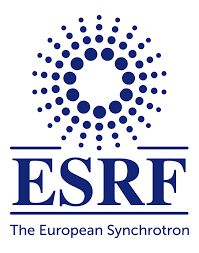
ESRF has just published a few of our more recent success stories with industry as a user, supplier and collaborator of our facilities.
“Industry has been working with the ESRF ever since we started operating the synchrotron in 1994. We try our best to be as open for industry as possible – supporting innovation in product development, process development and new technologies and advanced instrumentation“.
Check the brochure here!
SYNCHROTRON X-RAYS EMPOWERING INDUSTRIAL R&I : Synchrotron scattering methods for soft materials industrial research and development

Consumer products based on soft matter technology very often exhibit macroscopic properties, which are strongly dependent on their micro- and nano-structures extending over multiple size scales. Synchrotron small-angle X-ray scattering (SAXS) techniques provide complementary information to electron microscopy and help researchers to gain better insight into the structural details of a given specimen from atomic or molecular to mesoscopic scales.
The scattering techniques can be combined with various sample environments (e.g. in-situ rheology, rapid mixing, varying temperature, humidity or pressure) for probing in-situ real-time structural dynamics, crystallisation/dissolution kinetics, or out-of-equilibrium dynamics. Sub-micron beams enable high real-space spatial resolution studies of heterogeneous specimens.
The European Synchrotron Radiation Facility (ESRF) operates a suite of advanced instruments with a wide range of sample environments mimicking industrial processing conditions and operated by a dedicated staff of experts, on hand to advise users. Industrially relevant research is supported both through collaborations / partnerships with industry, as well as through fast and flexible access via proprietary experiments.
Watch the webinar here.
Latin America – Europe Symposium on Research Infrastructures
15-17 June 2021
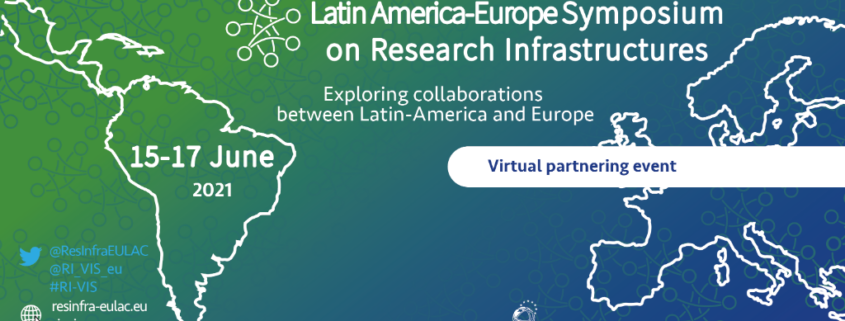
International cooperation in science and technology is an important part of addressing major global issues like climate change, infectious disease, food security, and natural disasters. Research infrastructures (RIs) are organisations that enable scientists to use specific facilities, resources, and expertise to enable and accelerate scientific achievements, overcome boundaries, train highly skilled specialists, and promote sustainable research.
The virtual three-day symposium brought together delegates from Latin American and European research infrastructures (RIs), science policy organisations and research institutions to discuss opportunities and challenges for RI cooperations between Latin America and Europe.
The RI-VIS Latin America – Europe Symposium , organised in collaboration with the EU-LAC ResInfra project ,took place between Tuesday, June 15th and Thursday, June 17th 2021, as a virtual event.
Research Infrastructures (RIs) – Energy Industry Meeting: Improving Industry Usage of RIs
29 April 2021
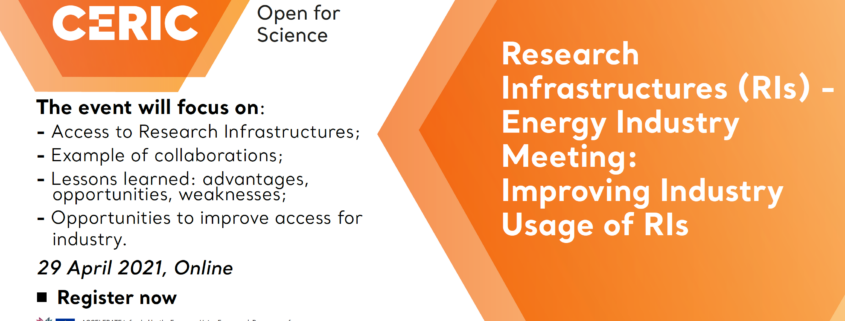
In the frame of the ACCELERATE project, CERIC orgamised a meeting focusing on the relationship between Energy companies (batteries, energy storage, fuel cells) and Research Infrastructures (RIs).
Short interventions by companies and research infrastructure representatives took place, where it has been discussed the type of existing relationships and opportunities to improve access for companies to research infrastructures.
Infrastructures for Interdisciplinary Engagement: Lessons from the Digital Humanities
22 February 2021
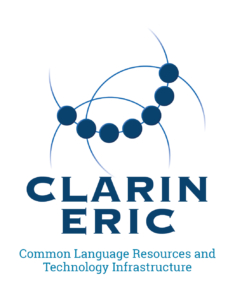
How can lessons learned from the DH be applied to other instances of inter- and transdisciplinary cooperation? The webinar highlighted which measures worked best in encouraging such cooperation on the basis of successful case studies and explored user involvement strategies aimed at disseminating already existing tools, services and methodologies among DH-curious but still largely “non-digital” scholars.
Read more about the workshop and access the recordings here.
ERIC Forum builds on achievements during 2020 and re-confirms Womersley and Ussi as Chairs
26 January 2021
The leadership group that led the ERIC Forum through 2020 has been reconfirmed, following the results of the ERIC Forum internal election process, published on the 26th January 2021 in occasion of the ERIC Forum Annual Meeting. John Womersley (ESS) and Anton Ussi (EATRIS) will lead the Forum for another year, following a complex year for research infrastructures, marked by the outbreak of the COVID-19 pandemic and the development of the next European multiannual financial framework.
Bringing together 21 leading European Research Infrastructures Consortia (ERICs), the ERIC Forum is one of the leading science policy voices in Europe, representing a sector (research infrastructures) that is crucial to provide high level services to European researchers and make science and innovation possible.
In 2020, the ERIC Forum was instrumental in increasing visibility for the services that each ERIC can provide to researchers involved in the fight against COVID-19. In parallel, the ERIC Forum remained the main contact point for several European stakeholders during the negotiation of the EU multiannual financial framework (MFF) and its impact on the development and maturity of research infrastructures, in particular concerning the final outlook of Horizon Europe, the world largest research and development funding scheme.
The 2021 elections, held online during the month of January, showed a strong support by the vast majority of ERICs, providing Dr Womersley and Dr Ussi a strong support to fulfil their mandate for 2021 The Chairs are responsible for the strategic planning of the Forum, and coordinate external relations with the European Commission, the European Strategy Forum on Research Infrastructures (ESFRI), and other stakeholders.
The Chairs will continue to be supported in their work by three other members of the Executive Board, each representing a specific scientific cluster:
• Franciska de Jong, Executive Director, CLARIN ERIC, for the social sciences and humanities cluster.
• Wolfgang Fecke, Director General, EU-OPENSCREEN, for the life sciences cluster.
• Juan Miguel González Aranda, Chief Technical Officer, LifeWatch ERIC, for the environment cluster.
Quote from John Womersley, re-elected ERIC Forum Chair:
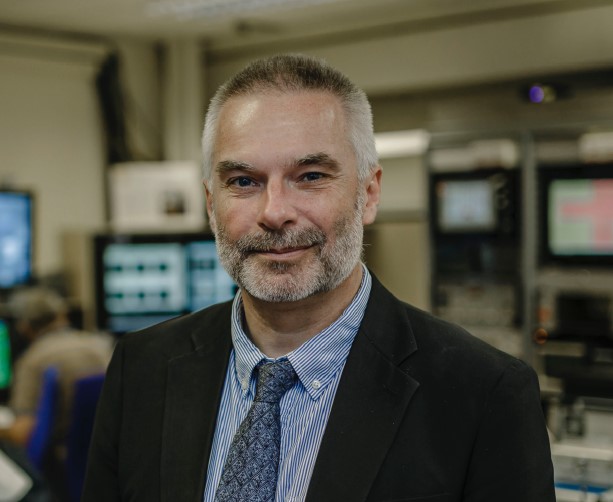 “The ERIC Forum has evolved very much since its inception as the “ERIC Network”, and 2020 demonstrated this unequivocally. In spring, the ERICs quickly came together, using the ERIC Forum to explain and emphasise the critical role of European research infrastructures as service providers to those researchers working to understand the Sars-COV-2 virus. The Forum showed cohesion and an effective quick response. At the same time, and despite the impact of the pandemic, we came together again to maintain awareness of EU stakeholders concerning the role ERICs must have in Horizon Europe and the new European Research Area. In 2020, the ERIC Forum clearly matured, taking strong positions on broader issues in science policy, funding, emergency responsiveness. 2021 will be a year of confirmation: we will build on 2020’s achievements and continue to develop the Forum, to make it ready to be fully sustainable in the years to come.”
“The ERIC Forum has evolved very much since its inception as the “ERIC Network”, and 2020 demonstrated this unequivocally. In spring, the ERICs quickly came together, using the ERIC Forum to explain and emphasise the critical role of European research infrastructures as service providers to those researchers working to understand the Sars-COV-2 virus. The Forum showed cohesion and an effective quick response. At the same time, and despite the impact of the pandemic, we came together again to maintain awareness of EU stakeholders concerning the role ERICs must have in Horizon Europe and the new European Research Area. In 2020, the ERIC Forum clearly matured, taking strong positions on broader issues in science policy, funding, emergency responsiveness. 2021 will be a year of confirmation: we will build on 2020’s achievements and continue to develop the Forum, to make it ready to be fully sustainable in the years to come.”
Quote from Anton Ussi, re-elected ERIC Forum Vice Chair:
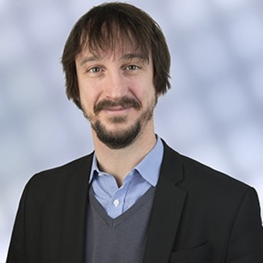 “It is a privilege to continue to work with such a committed community operating world class infrastructures, that time and again show huge added value to the European Research Area. The COVID-19 crisis is a case in point and confirms the need for the ERIC Forum. Together we were quickly able to develop tools and services, put forward important policy considerations, and generate important knowledge about the pathogen and its health impact.
“It is a privilege to continue to work with such a committed community operating world class infrastructures, that time and again show huge added value to the European Research Area. The COVID-19 crisis is a case in point and confirms the need for the ERIC Forum. Together we were quickly able to develop tools and services, put forward important policy considerations, and generate important knowledge about the pathogen and its health impact.
Looking forward, 2021 will be crucial – we will have to keep delivering as we did in 2020, and at the same time look at the future in the usual, highly collaborative, transparent way of the ERIC Forum. It is my pleasure to work with John and the Executive Board to continue to advance the ERIC Forum agenda.”
Joint Position Paper on Horizon Europe Missions issued by Europe’s Analytical Research Infrastructures
10 July 2020
The Analytical Research Infrastructures of Europe (ARIEs) released a Joint Position Paper on the 9th of July in which they present ARIEs as a key resource for the 5 Horizon Europe Missions. It is argued that these missions require exceptional solutions, and the world-leading ARIEs are one of the key places those solutions can be sought.
“The Analytical Research Infrastructures of Europe (ARIEs) provide unique windows into the workings of the world around us,” says Caterina Biscari, Chair of LEAPS and Director of the ALBA Synchrotron in Spain. “The cross-border cooperation within Europe allows for harnessing the power of its analytical research infrastructures collectively, to fuel the cutting-edge R&D required by the five Horizon Europe Missions. Nowhere else in the world is this readily possible.”
The ARIEs are centres of scientific and technological excellence, delivering services, data and know-how to a growing and diverse user community of more than 40,000 researchers in academia and industry, across a range of domains: the physical sciences, energy, engineering, the environment and the earth sciences, as well as medicine, health, food and cultural heritage. They include powerful photon sources, such as synchrotrons, laser systems and free-electron lasers; sources of neutrons, ions and other particle beams; and facilities dedicated to advanced electron-microscopy and high magnetic fields.
3 ENRIITC Partners took part in the development of this paper: The European Magnetic Field Laboratory (EMFL), the League of European Accelerator-based Photon Source (LEAPS), and the League of Advanced Neutron Sources (LENS) as apart of BrightESS2.
EU-OPENSCREEN-DRIVE
1 April 2020
EU-OPENSCREEN DRIVE is an Horizon-2020-funded project which aims to support the development and long-term sustainability of EU-OPENSCREEN ERIC, the European Research Infrastructure for Chemical Biology. One of the main goals of this project is the development of a structure which allows seamless engagement of the EU-OPENSCREEN ERIC with industry partners, acting as a hub for the generation of innovation, with a dedicated work package supported by the partners at University of Santiago de Compostela and at University of Oslo.
An Industry Liaison Office (ILO) composed by members of the pharmaceutical industry and technology vendors has been established, representing a direct channel of interaction between academic partners and industry. Co-development projects will be designed to both support technology providers through the validation of their technologies by using EU-OPENSCREEN services, and to develop innovative methodologies that can be of interest for the pharmaceutical companies. These collaborative projects will allow academic groups to access cutting edge technologies and know-how and will strongly support the innovation and the scientific and economic impact of the European chemical biology community.
EATRIS-Plus Kick-off Meeting
13 February 2020
An alliance of 19 partners representing academia, industry and patient organisations from 16 countries gathered in Lisbon, Portugal on February 13 to kick-start the Horizon 2020-funded project, EATRIS-Plus. The meeting was hosted by INFARMED, Portuguese medicines agency and representative of the EATRIS node in the country.
With a budget of nearly €5 million and representatives from all 13 supporting Member and Observer countries, EATRIS-Plus will take the development of the infrastructure one step further, notably by enhancing its international outreach capacities, long-term sustainability strategy, strengthening industry collaborations and by building academic capacity for personalised medicine research.
For more information about this event, please click here.
EMSO Conference: Preparing for UN Decade of Ocean Science
12-14 February 2020
The European Multidisciplinary Seafloor and water-column Observatory Research Infrastructure Consortium (EMSO ERIC) held the EMSO Conference: preparing for UN Decade of Ocean Science on February 12th-14th to offer an international scientific framework to increase the coordination and the effectiveness of international cooperation worldwide.
By stimulating the exchange of information, best practices, and strategy alignment among marine researchers, engineers, and representatives of industry, Institutions, Research Infrastructures and Funding Agencies, the conference was designed to contribute to the improvement of the conditions for sustainable development and fulfilment of societal needs, increasing the awareness of the importance of the Ocean’s health.
For more information about this event, please click here.
ESRF User Meeting 2020
3-5 February 2020
The annual ESRF User Meeting was held in early February 2020, two months into intense electron beam commissioning and less than a month before the beginning of beamline commissioning and, more importantly, the first proposal submission deadline for beam time with the new source (deadline on 2nd March 2020). The user community is gearing up to prepare new proposals to exploit the outstanding scientific opportunities, and the ESRF User Meeting was the ideal opportunity to hear the latest news and to discuss and prepare new ideas and proposals.
For more information about this event, please click here.
EMSO & Ocean Networks Canada joint session at AGU Fall Meeting 2019
9-13 December 2019
This session brought together organisations operating cabled and other fixed ocean observatory infrastructures to exchange and coordinate observing strategies that contribute to the goals of the UN Decade of Ocean Science for Sustainable Development. Throughout the Decade these observing systems will be collecting high-resolution, in-situ, ocean time-series data, in support of basic research, operational oceanography, and maritime safety, from the coast to the deep-sea floor.
For more information about this event, please click here.
SSHOC Workshop: Using Corpora for Implementing Validation – CLARIN
30 September 2019
This workshop introduced the polmineR package and explored three basic scenarios using it:
- Validating the results obtained from dictionary-based sentiment analysis and classification,
- Validating the results of LDA topic modelling,
- Giving substantial meaning to the results of cooccurrence analyses.
It was discussed whether to potentially combine the scenarios with semi-supervised learning, and how to leverage of machine learning (MI) approaches. As the dataset and tool combination, polmineR R package was used in combination with a multilingual corpus of the UN General Assembly.
For more information about this event, please click here.
